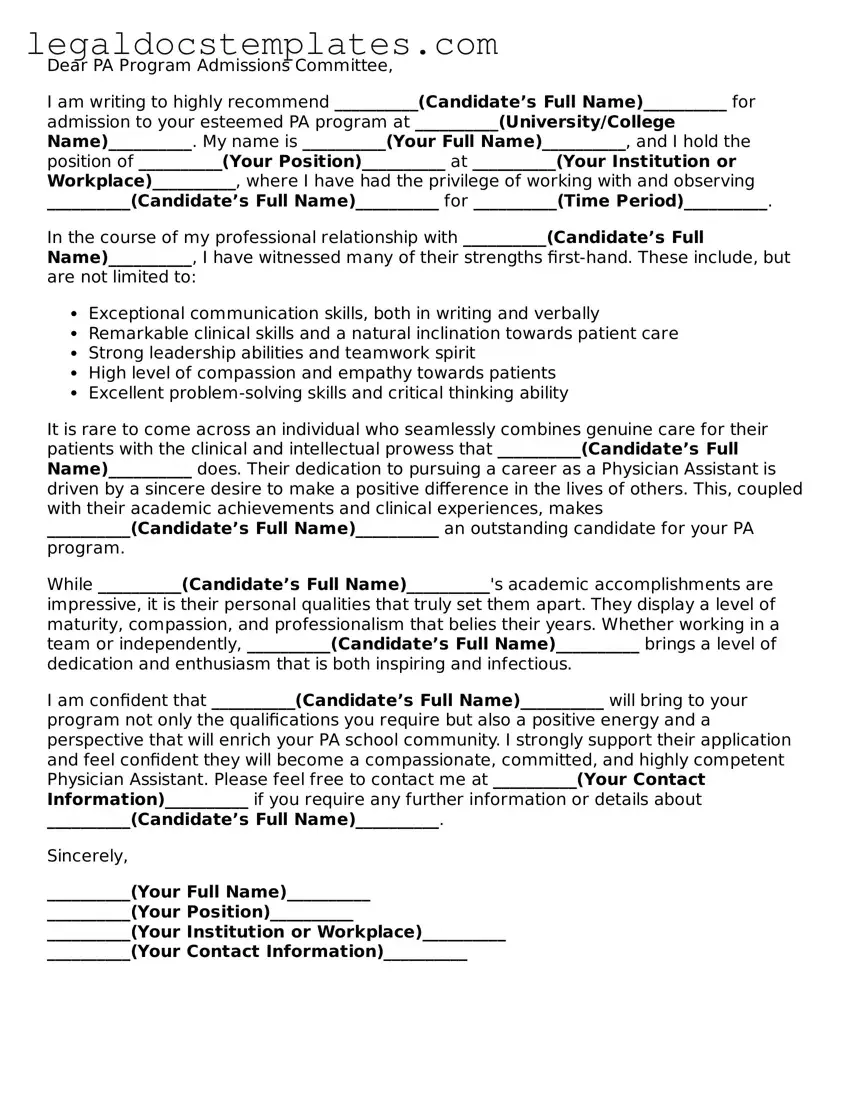Printable PA School Letter of Recommendation Template
The PA School Letter of Recommendation form is a standardized document used by applicants to Physician Assistant programs to provide evaluators with a framework for submitting a recommendation. This form plays a crucial role in the admissions process, offering insights into the applicant's qualifications, character, and potential as perceived by professors, professionals, or mentors. For a seamless application process, interested parties are encouraged to fill out the form by clicking the button below.
Access PA School Letter of Recommendation Now

Printable PA School Letter of Recommendation Template
Access PA School Letter of Recommendation Now

Access PA School Letter of Recommendation Now
or
⇩ PDF Form
Don’t spend hours on this form
Complete PA School Letter of Recommendation online in minutes, fully digital.